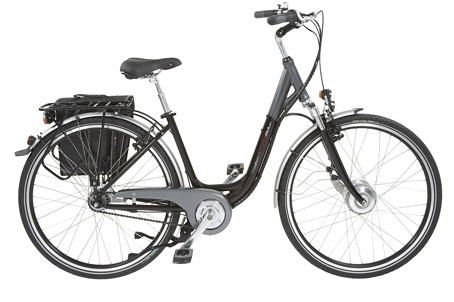On Your Bike
Posted by Big Gav on June 8, 2008 - 7:06pm in The Oil Drum: Australia/New Zealand
Here are a couple of long weekend links, looking at the increase of interest in cycling as fuel prices rise - both via Energy Bulletin.
First, Geraldine Doogue and Scott Wales at the ABC on "The Bike Boom?".
Unlike the Europeans, and many parts of Asia, cycling in Australia has largely been a leisure activity rather than a mainstream form of transport for commuting to work or university. Could that be about to change?
In a somewhat ironic twist one of Australia's largest retailers of automotive accessories has announced that it will roll out 50 specialist bike stores nationwide. The Super Cheap Auto group is behind the deal, one which involves the purchase of a Victorian chain of bike stores called Goldcross. Peter Birtles says there's an untapped market somewhere between specialist bike stores and the bikes you might buy at K Mart or Big W.
Next, Alan A. Parker from Beyond Oil South Australia submitted this paper on "Electric bicycles reduce oil dependence, pollution and are potential economic users of solar electricity" (pdf) to the SA Select Committee on the Impact of Peak Oil on South Australia.
This paper describes the evolution and future potential of Pedelecs and E-bikes in China and Japan so as to learn from their experience, which is valuable for assessing the potential benefits of encouraging the use of the Pedelec and E-bike in Australia. ...
The prototype Pedelec was designed in Japan in 1989 to take 50% of the effort out of cycling for elderly cyclists at the request of the government. The design concept was to provide power assistance upon starting, when on hills, when riding into the wind, and when carrying lots of shopping. They did not want the power assistance to be used by irresponsible cyclists to go fast on footways or narrow access roads shared with pedestrians so the power fades out from 20 to 24 kph. The extra dead weight of the motor and battery limits further acceleration when pedalling. In 2008 in Japan the objective of enhancing the mobility of the elderly has been achieved and the largest niche market for electric bicycles has been women over 55 years of age. However in China people of all ages ride E-bikes ...
Access to transport is a fundamental need of everyone, particularly in outer suburbia. The use of Pedelecs could become the main means of local transport and to access rail stations or express and trunk bus route, providing that secure parking is available for the Pedelec. For all practical purposes tomorrow's electric two wheelers are destined to join the bicycle and walking as the only forms of transport that emit no emissions if charged from solar cells. Most cities have sprawled beyond the plains and are spread across hilly terrain. If bikeway networks existed Pedelecs could overcome these constraints and could be used to enhance personal mobility in much the same way as bicycles do in flat cities.
Related articles:
Phil Hart - How Big is your Bicycle?




